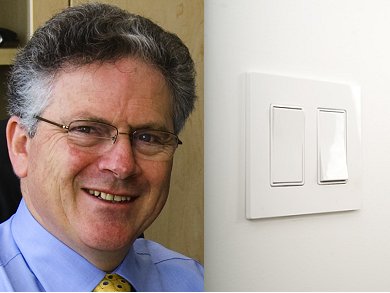How do we persuade people in a historic university to adopt modern practices? For example, the University of Cambridge is associated with over 80 Nobel Prizes, however, it can be difficult to persuade this huge pool of individualism and creativity to change and reduce its energy consumption.
In his Editorial in Angewandte Chemie, Jeremy K. M. Sanders, Pro-Vice-Chancellor at the University of Cambridge, UK, explains how his is a democratic institution where 3500 people have the right to vote on important issues, and departments prefer to keep their distance from the central administration. He outlines the steps that are being taken to try and reduce the energy bill for the University of Cambridge (currently £11 million), where most of the energy use is for research, in particular cooling for IT applications and environmental control in both libraries and growth facilities.
Sanders describes the measures that the University has taken, including turning off unnecessary lights and ovens, and cycling to work on an individual level, and optimizing the performance of heating and cooling systems on a departmental level. The centralization of servers and IT equipment into naturally cooled rooms is also a possibility on the university level, but it is difficult to implement.
The problem with implementing such changes anywhere is that behavioral changes are necessary, but difficult to motivate, and will only occur when colleagues understand that it in their best interests.
- How Can Change Be Achieved? – Energy Saving in Cambridge,
Jeremy K. M. Sanders,
Angew. Chem. Int. Ed. 2013.
DOI: 10.1002/anie.201306176




